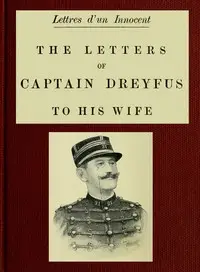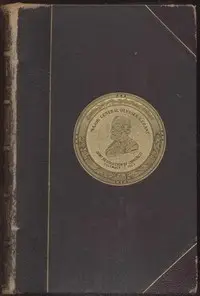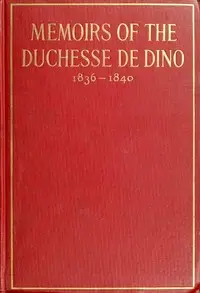"Lettres d'un Innocent: The Letters of Captain Dreyfus to His Wife" by Alfred Dreyfus is a collection of personal letters written during the late 19th century. This poignant correspondence recounts Dreyfus's experiences and thoughts as he faces wrongful accusations of treason while imprisoned. The letters, addressed to his wife, Lucie, reveal his unwavering conviction of innocence and deep devotion to his family and country. The opening of this work introduces us to Captain Dreyfus's emotional state shortly after his arrest. It captures his feelings of despair and disbelief as he grapples with the gravity of the charges against him. In his letters, he expresses profound anguish over being accused of betraying France—a country he has served honorably—and seeks solace in the love of his wife and his commitment to proving his innocence. Dreyfus’s writings convey a sense of hope amidst despair, illustrating the personal impact of a public scandal that would resonate globally for years to come. (This is an automatically generated summary.)

Lettres d'un Innocent: The Letters of Captain Dreyfus to His Wife
By Alfred Dreyfus
"Lettres d'un Innocent: The Letters of Captain Dreyfus to His Wife" by Alfred Dreyfus is a collection of personal letters written during the late 19th...
Alfred Dreyfus was a French artillery officer of Alsatian origin and Jewish ethnicity and faith. In 1894, he fell victim to a judicial conspiracy that sparked a major political crisis during the Third Republic, known as the Dreyfus Affair (1894–1906), when he was wrongfully accused and convicted, due to antisemitism, of being a spy for the German Empire. Upon his arrest, he was sentenced to degradation and deported to the penal colony on Devil's Island to be imprisoned until his death. However, evidence emerged showing that Dreyfus was innocent and that the true culprit was a Catholic officer named Esterhazy. Gradual revelations indicated that the internal investigation conducted by the army was biased; Dreyfus was an ideal scapegoat because he was Jewish, and the army's high command was aware of his innocence but preferred to cover up the affair and leave him in the penal colony rather than lose face.













